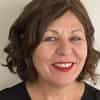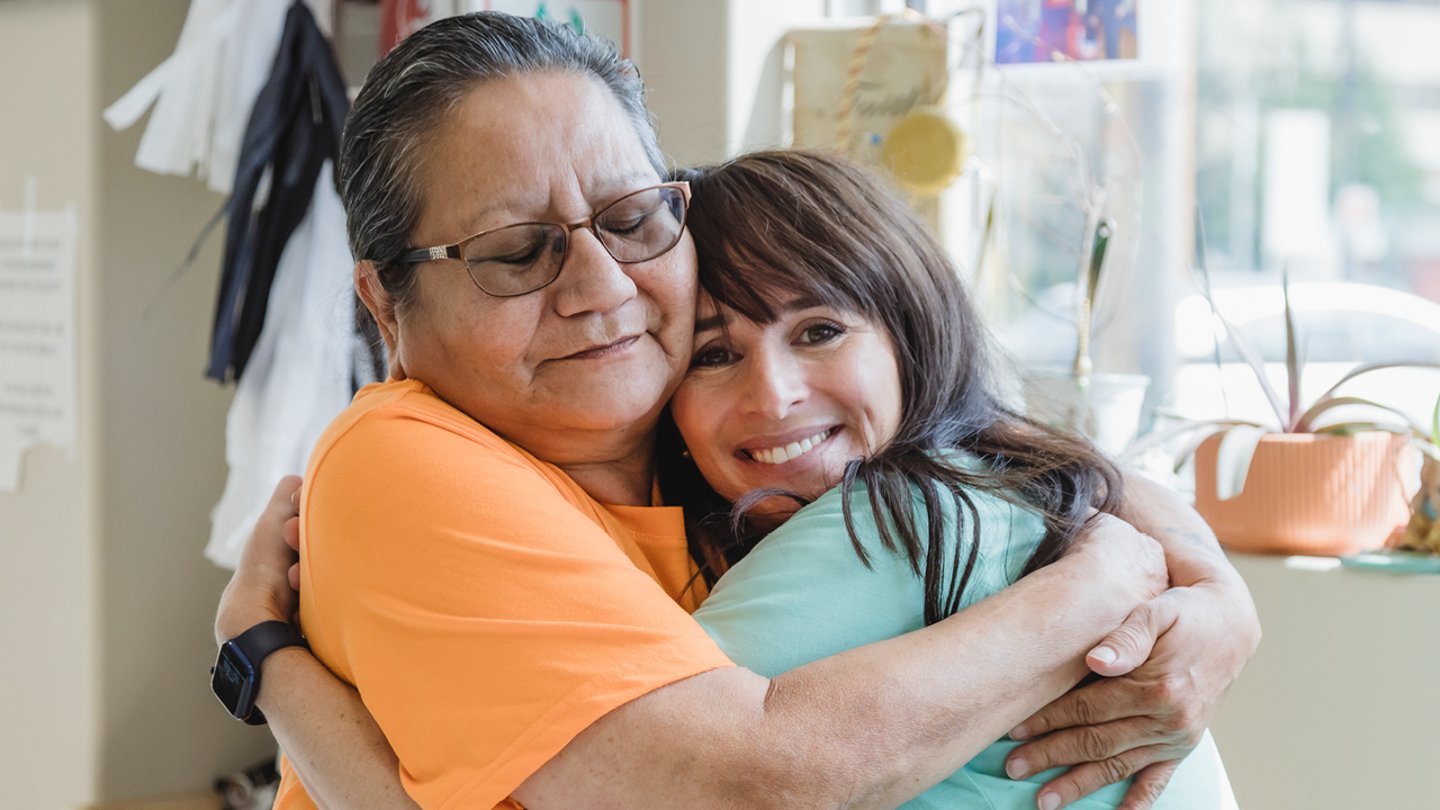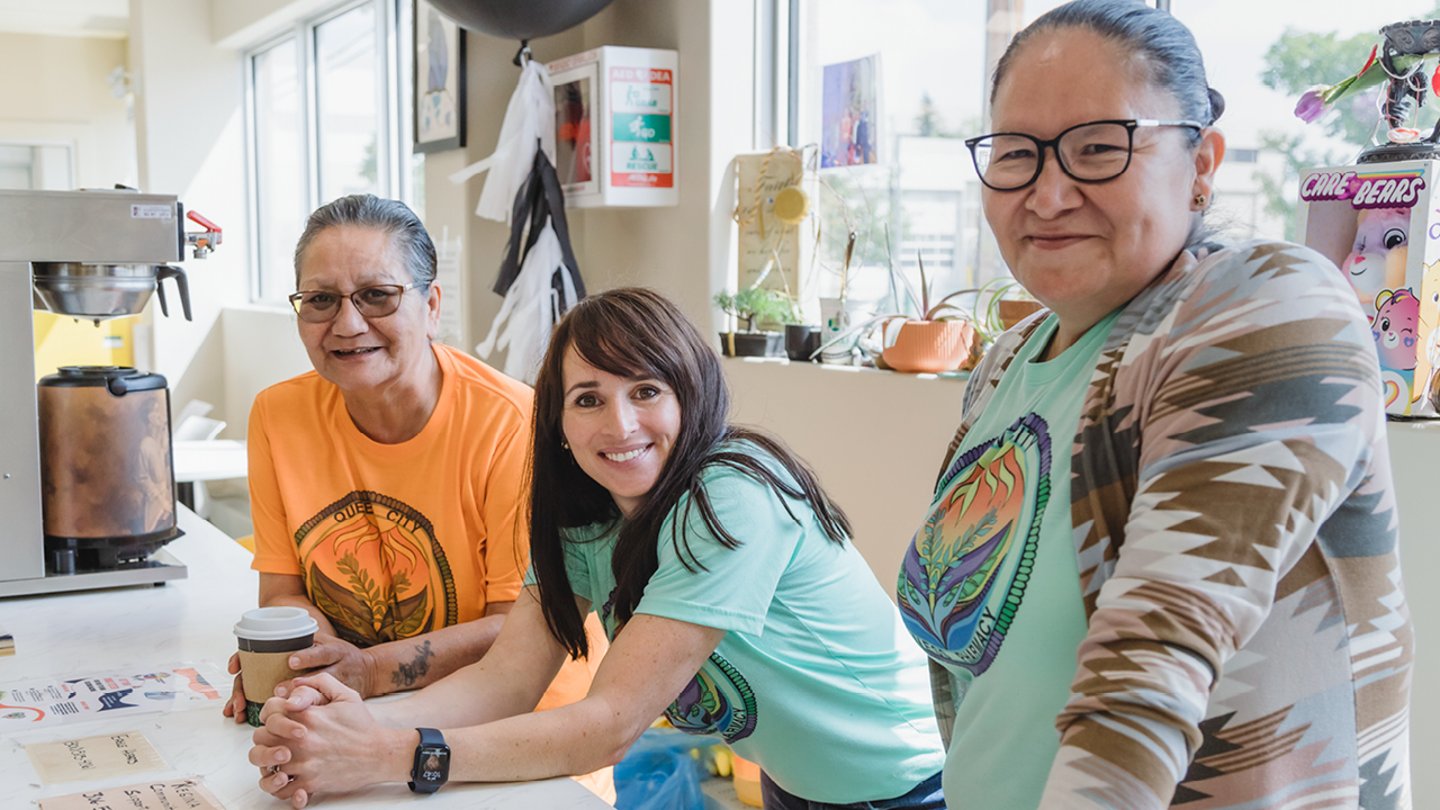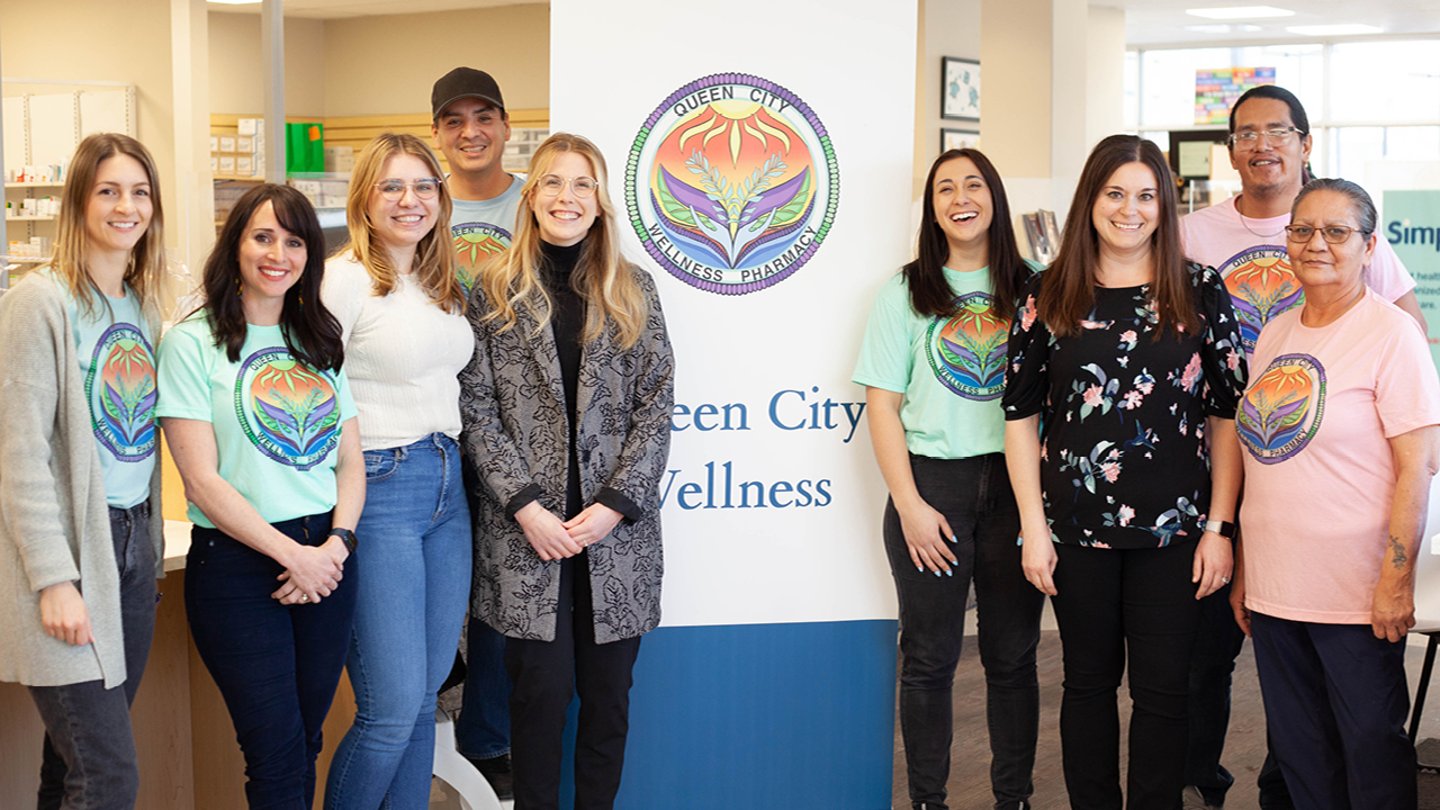Safe haven: Sarah Kozusko provides a bridge to vital healthcare for the most vulnerable
Queen City Wellness Pharmacy in downtown Regina, Sask., is best described as a true community healthcare hub. It’s a safe haven for the homeless, addicted and disadvantaged to access warm clothes, food and essential connections to vital community resources; it’s also a pharmacy that provides top-notch diabetes and wound care, vaccinations, point-of-care testing, chronic disease management and mental health support.
Pharmacist and pharmacy operator Sarah Kozusko says Queen City (owned by Neighbourly Pharmacy) has become an essential onramp for those needing healthcare services to get on track towards a healthier future. “We build bridges back to the healthcare system,” she says, noting that it’s not uncommon for staff to book doctor’s appointments for patients and even find transportation to get them there.
How did you first get involved in caring for marginalized patients?
I became a pharmacist in 2004 and was primarily involved as a diabetes educator and chronic disease management specialist in pharmacies in Regina and Calgary. But then I started working in this pharmacy in a heritage neighbourhood in Regina, and in 2018 took over as operator/manager. I started providing services for whoever walked through the door, and more and more of them were from marginalized communities where food security and shelter were the primary issues. I started handing out oranges and packaged foods and today we work with a non-profit in Regina where we purchase 120 meals a day to hand out at the pharmacy. We also take clothing donations because people often come in without shoes or jackets, even in the winter.
Tell us about your services?
Besides all the traditional pharmacy services, we have a nurse on staff who provides wound care. We partner with a non-profit to do clean-needle exchanges here. We are in a research study with The Wellness Wheel for point-of-care HIV and syphilis testing. We have a traditional, indigenous-based, 12-step program we run out of the pharmacy once a week called Wellbriety. We also work with other non-profits who do taxes for our patients and help in sourcing housing, jobs etc.
With 3,500 square feet of space, we have several rooms that are being taken up by non-profits providing services. We’ve even had people come in and do art programs in our boardroom—whatever the community needs. We have no front-shop, so it’s all about clinical services. Our motto is that we are a safe space and whoever you are, you are safe here.
We’re also broadly supported by local government who have helped raise awareness about what we do. Last month we had the police chief here doing tours and looking at ways we can work together to support the community. They realize we help bring down barriers and build trust between those in need of social services and healthcare options available to them.
How do you stay profitable?
When you give people what they need and become their trusted pharmacy, they fill their prescriptions here, so it all works out. They’re connecting to care regularly and getting prescriptions filled that they probably wouldn’t have otherwise.
Tell us about your staff.
We have four pharmacists, one nurse, seven pharmacy assistants (of those, two also work in community outreach) and we have a store Kokum—the Cree word for grandmother—who stays up front handing out food and coffee and making sure everyone is safe. We really try and hire within the community too; up to 40% of our staff is indigenous and several have experienced similar issues to those our patients now face.
Is it difficult recruiting staff given your non-traditional patient base?
I’d say initially people may be afraid to work in this environment but once they start, they never leave. The clinical care we are doing here is really outside of the box so that makes things interesting. We’re lucky to work with doctors and allied health professionals who get it and support us. We also have nursing, pharmacy and medical students here all the time because I think it’s important for them to see what we’re doing so it becomes the norm. In fact, many are inspired to continue this sort of practice in their own careers.
But we do see a lot of death and loss and that is a hard part of the day. One day we had two overdoses at exactly the same time. We also have to get people to leave at 6 pm when we close, often knowing they have nowhere else to go. Fortunately, we have good relationships with other community support services we can refer them to, but there are always going to be some people we just can’t help.
How do you and your staff deal with all the loss?
We train staff to keep good patient/provider boundaries. We bring in psychiatric nurses, counsellors and elders regularly to debrief our staff after difficult situations. We also started a sharing circle for community support workers in Regina who meet once a month to talk about their challenges. We really try and keep mental health top of mind. Because it’s a safe space, it’s also a relaxed and happy space where there is a lot of laughter every day.
What are some challenges you’ve experienced in growing your pharmacy vision?
Given that what we’re doing is not what people are used to in a pharmacy, we have some of that ‘not in my backyard’ mentality at times. I’ve been told I support homelessness or that I’m causing drug addiction because I support people with substance dependencies. Thankfully those complaints are few and far between.
What percentage of your patients are not from marginalized communities?
About 30%. They know our pharmacists are clinically strong and the services are good. They also know that getting their prescriptions filled here is servicing the community and so it has become a point of pride to be a Queen City Wellness patient. Some patients will even come in with donations themselves.
Is this at all how you imagined you’d be practising pharmacy when you graduated?
Not at all. My dad was a doctor and mother a nurse, so I grew up with the highest level of privilege. But it’s about helping the people who walk through that door with what they need most. It’s pretty rare that a homeless person is going to be concerned about their diabetes; we have to figure out where to find him some shoes and a meal first before we can start to focus on his healthcare needs.
What are your future goals for Queen City Wellness?
It’s always changing depending on our community needs, but I’d love to have a doctor or nurse practitioner on-site to see patients when they walk in the door. Because pharmacists are the most accessible healthcare professionals, I’d also love to see more of us out there supporting our communities in this way. We really are the easiest touchpoint into the traditional healthcare system for everyone.
Rosalind Stefanac is a Toronto writer specializing in pharmacy and retail journalism.





